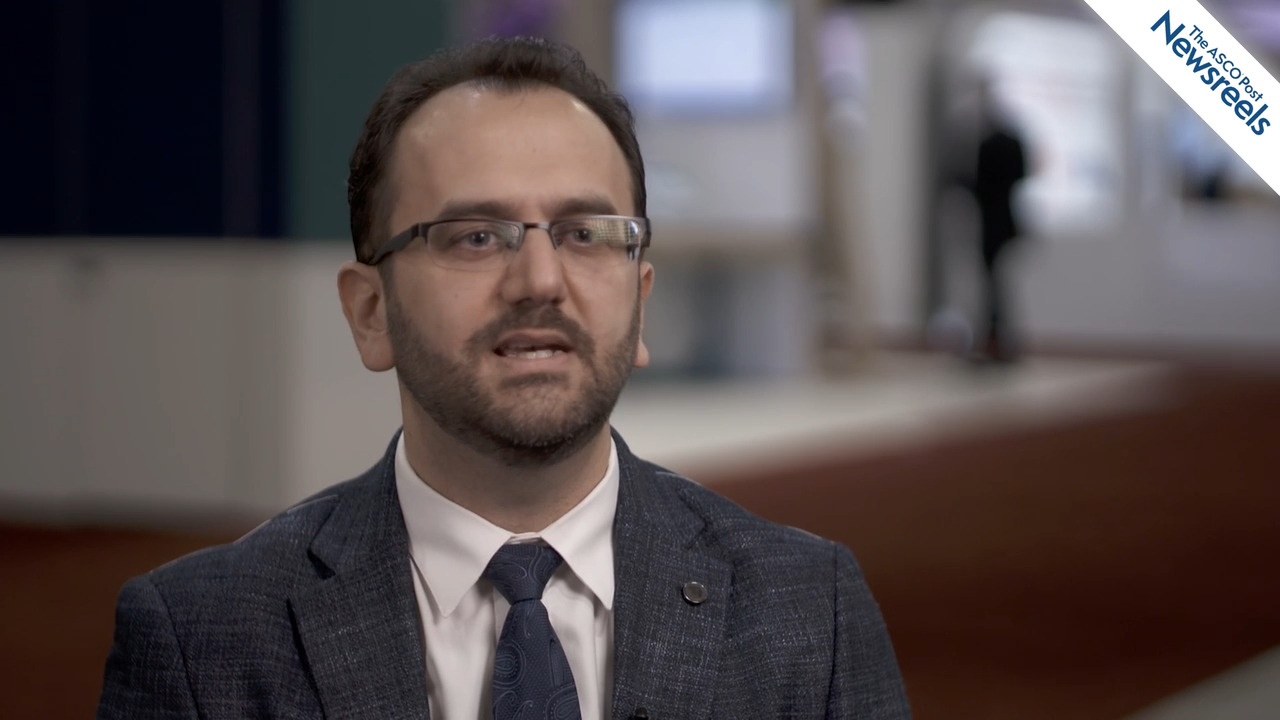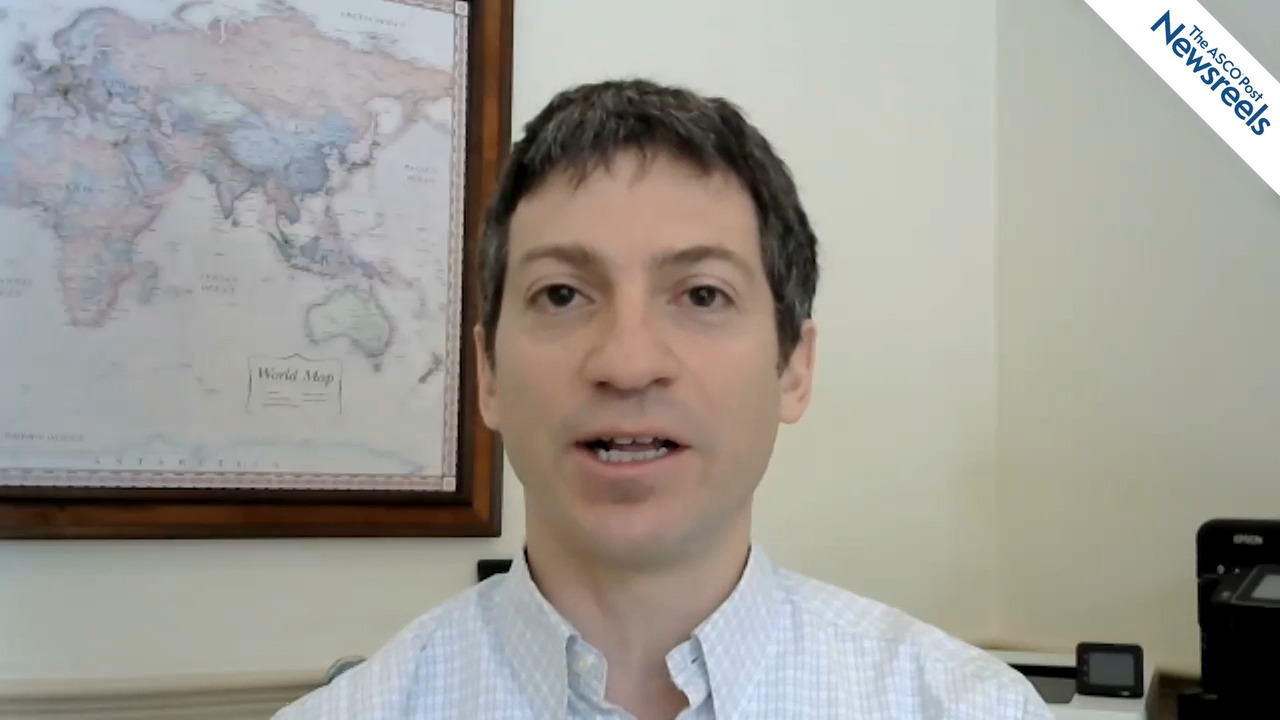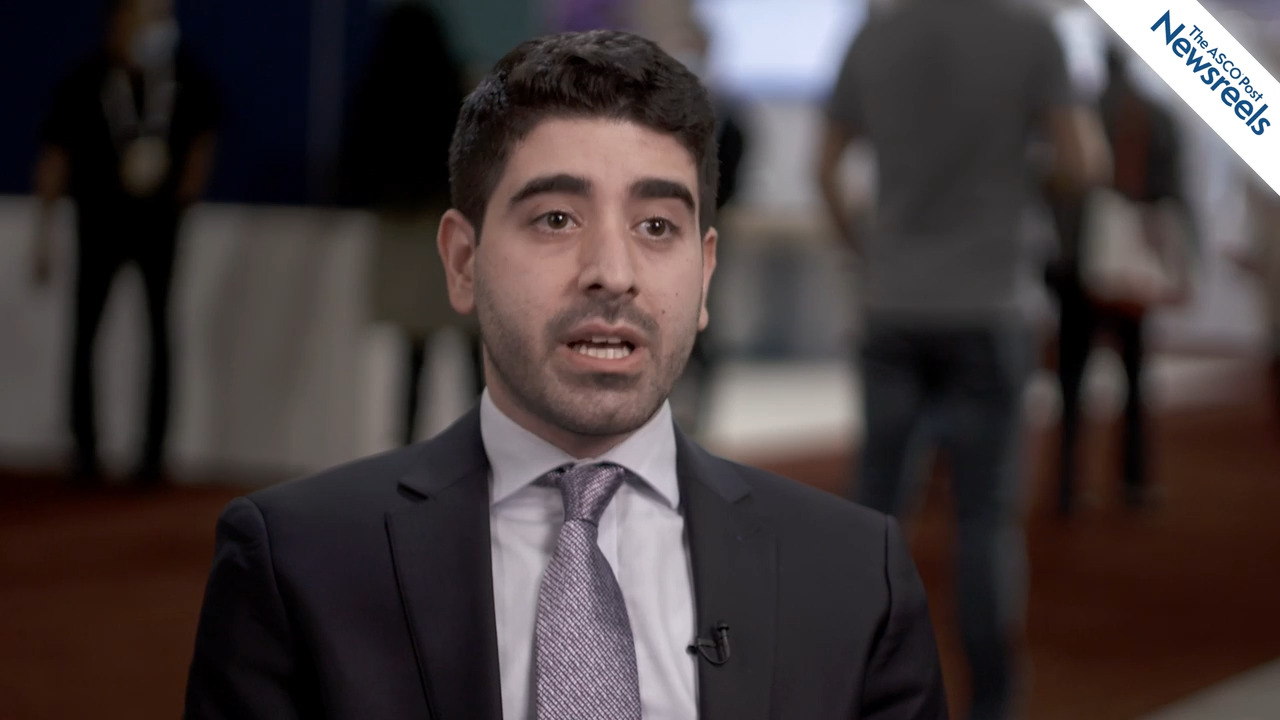Masayuki Umeda, MD, on Pediatric AML: Identifying a Key Subtype-Defining Lesion
2021 ASH Annual Meeting & Exposition
Masayuki Umeda, MD, of St. Jude Children's Research Hospital, discusses his research which showed that UBTF-TD (upstream binding transcription factor-tandem duplications) define a unique subtype of acute myeloid leukemia that previously lacked a clear oncogenic driver. UBTF-TD is associated with FLT3-ITD and WT1 mutations, adolescent age, and poor outcomes. These alterations are critical for future risk-stratification for this patient cohort.
The ASCO Post Staff
Leslie S. Kean, MD, PhD, of Dana-Farber/Boston Children's Cancer and Blood Disorders Center, discusses findings from her analysis of the International Blood and Marrow Transplant Research Database, which led to the recent FDA approval of abatacept for the prevention of acute graft-vs-host disease (GVHD) in adult and pediatric patients. The data suggest improved overall survival with the immunosuppressant abatacept in combination with a calcineurin inhibitor and methotrexate following 7/8 HLA–matched unrelated allogeneic hematopoietic stem cell transplantation (Abstract 3912).
The ASCO Post Staff
Musa Yilmaz, MD, of The University of Texas MD Anderson Cancer Center, discusses study results suggesting that quizartinib with decitabine and venetoclax is active in patients with FLT3-ITD–mutated acute myeloid leukemia and that RAS/MAPK mutations continue to drive primary and secondary resistance (Abstract 370).
The ASCO Post Staff
Matthew S. Davids, MD, of Dana-Farber Cancer Institute, discusses phase II results from a multicenter study that showed the efficacy of ibrutinib plus fludarabine, cyclophosphamide, and rituximab in younger, fit patients with chronic lymphocytic leukemia who desire the possibility of a functional cure with time-limited therapy (Abstract 640).
The ASCO Post Staff
Daniel A. Ermann, MD, of the Huntsman Cancer Institute, University of Utah, discusses results from the largest retrospective study on outcomes utilizing radiotherapy in early-stage diffuse large B-cell lymphoma. Adding radiation to front-line multiagent chemotherapy was associated with a survival benefit for all patients with early-stage disease. An overall survival benefit was seen with the addition of radiation to front-line multiagent chemotherapy for patients with nodal involvement and those with specific extranodal involvement in the testes, thyroid, skin and soft tissue, and head and neck (Abstract 49).
The ASCO Post Staff
Tarek H. Mouhieddine, MD, of The Mount Sinai Hospital and The Icahn School of Medicine at Mount Sinai, discusses data that suggest patients with heavily pretreated, predominantly triple-class refractory multiple myeloma who relapse after treatment with bispecific antibodies may still have good outcomes when sequentially treating with other immunologic treatments (Abstract 821).





